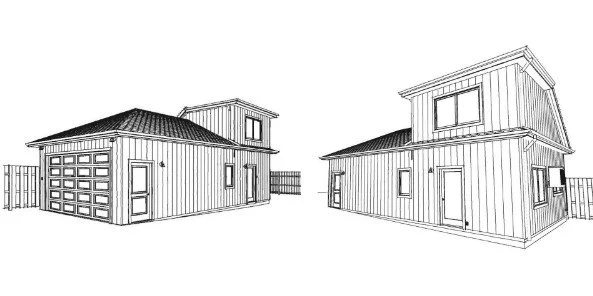Rooming Houses Are Now Legal Across All Of Toronto
What does this mean for The City of Toronto and all of its inhabitants?
After quite a few years ironing out the details of how to implement a city-wide rooming house (now otherwise known as multi-tenant) program, the City has passed a by-law that creates a consistent zoning requirements for multi-tenant homes across Toronto. Read on below to get a background of the program, what they are trying to accomplish, and what it means for home owners, investors, and tenants.
Background into rooming (or multi-tenant) houses
Multi-tenant houses are defined as homes that contain multiple dwelling units. A dwelling unit is defined basically as a room with access to a bathroom and kitchen within the same home.
The City of Toronto currently has a program that oversees these types of homes, but before this new by-law was enacted it was only applicable to Old Toronto, York, and some parts of Etobicoke. They have now created a comprehensive by-law that is applicable to all areas of Toronto. The City of Toronto has built a regulatory framework that centers around creating licensing requirements and compliance standards for landlords that will hopefully lead to more rental units across the City of Toronto with better living standards and create a more affordable City.
Requirements for converting a home to a legal Multi-tenant house
The process of converting a home into a legal multi-tenant home will have to abide by the regulations in the Ontario Building Code, along with the already-established zoning by-laws in Toronto. The requirements that the City of Toronto has singled out are shown below:
A Multi-tenant home is permitted in a building originally constructed as a multi-tenant house, or a building permitted in the applicable zone.
A Multi-tenant home must have sanitary facilities, which include a toilet, wash basin, and a bath or a shower, at a minimum rate of one sanitary facility for every four dwelling rooms.
A Multi-tenant home must provide parking spaces at a minimum rate of 0.34 for each dwelling room.
You are allowed to have a private bathroom or private kitchen in each unit but cannot have both
The multi-unit (rooming house) program will not come into effect until March 31st, 2024. Depending on the area of the City the property is located and the zoning of the property you will be allowed a certain number of units. For example, in Scarborough you will be permitted a maximum of 6 units in a home but in some areas of East York, Toronto, and York (depending on the zoning of the property) you can be allowed 12 units for various residential zones and up to 25 for specialized commercial-residential zones. The map below details the updated areas in Toronto where rooming houses will be allowed.
Note that these requirements are not exhaustive, and you will want to involve a BCIN designer to help design your home to properly conform to all applicable zoning by-laws and building code requirements.
How to find out if my property qualifies for Multi-tenant housing in toronto?
The best way to determine this is by going to The City of Toronto’s zoning map to see what your property is currently zoned as. Once you have found your property you can refer to the 569-2013 comprehensive zoning by-law to find out what the permitted uses are for your property. If Multi-tenant is found in the list of permitted uses you can go ahead and reach out to a designer and start the permitting process!
***Note that the last time we checked the zoning by-law was not yet updated to account for multi-tenants in permitted uses, but you can subscribe to updates to the multi-tenant program here (at the bottom of the page) to get updated information moving forward.
What does this mean for Torontonians?
The final result of this new city-wide zoning change will not be known until landlords across Toronto begin to trickle into the program. The unfortunate reality is that the municipalities that did not allow for multi-tenant zoning already had illegal rooming houses to begin with, so hopefully the additional licensing and compliance needed with this new program will help keep neighbourhoods safe, affordable, and help contribute additional living options for existing and future Torontonians.
The end goal is to create a more dense, affordable, and connected City, but there are concerns that being too dense may reduce the overall quality of life for the entire City.
Our hope is that this program is rolled out properly, there is enough by-law enforcement, and that illegal rooming houses can be eradicated from Toronto to create a safer tenant experience and an overall better quality of life.
What are your thoughts? Comment below!
Reach out to us with any additional questions or inquiries you have!
Please reach out to us or leave a comment below if you have any specific questions!
About BVM COntracting
BVM Contracting is a full-service General Contractor or Home Builder located in Toronto. We provide home renovation and building services for major home renovations (kitchen renovations, bathroom renovations, basement renovations, full interior renovations, home additions, lot severances, and new home construction). Our goal is to help guide our clients through the process of renovating their home, from concept to completion.
Further than providing General Contracting and Project Management for major home renovations, we also offer value-added services such as renovation financing, renovation rebate consultations and services, building permit and design services, smart home installation services, and real estate investor services.
To learn more about our offering by visiting our services page.







